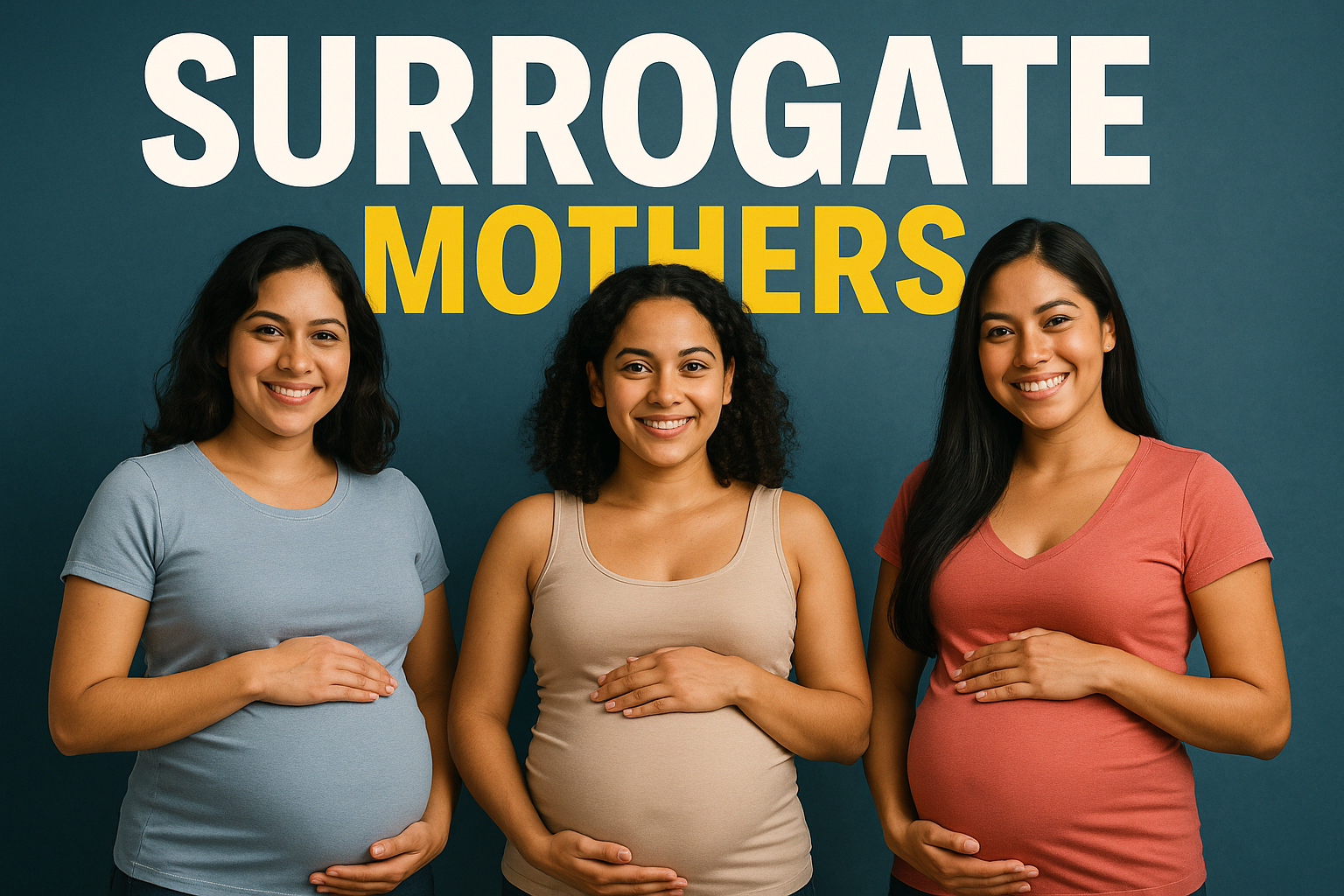




As part of a philosophical thesis at the Universidad Externado de Colombia, Marco Julio Velásquez Mejía—Director of Health Med Cali S.A.S.—was invited to reflect on the meaning and reality of gestational surrogacy. With over a decade of experience supporting families through assisted reproduction, and a deeply personal connection to the field, Marco brings not just knowledge, but heart to this conversation.
In his words, surrogacy is not merely a clinical or logistical process—it is a human act built on love, trust, and the shared dream of creating life.
For Marco, surrogacy is “a completely valid path, a profound act of love, and a transformative experience for everyone involved.” He describes it as a temporary family alliance—between the intended parents, the surrogate, and the professionals who support them—united by a common goal: to bring a beloved child into the world.
He emphasizes that this process must be guided by dignity and ethics. “This will become increasingly necessary,” he adds, “and the law must evolve to protect everyone, especially the child.”
Marco explains that intended parents approach surrogacy with a mix of logistical preparation and emotional vulnerability. “They feel anxiety, fear that the surrogate might become emotionally attached, legal uncertainties, and stress from physical distance. It’s a journey that requires emotional resilience and strong support.”
He stresses the importance of staying present throughout the process and receiving psychological guidance to navigate the ups and downs with clarity and hope.
When asked to define his role, Marco says, “I see myself as a guide. A mediator who walks alongside both families and surrogates with clarity, patience, and truth.” He draws on his own family’s legacy in reproductive medicine, but also recognizes the emotional weight of the role. “Sometimes I need to self-regulate,” he admits, “but I’d represent my role with the image of a guardian angel—someone who looks after everyone involved.”
In today’s world, motherhood goes far beyond the biological act of carrying a child. Being a mother is, above all, a conscious commitment to care, presence, and love. A mother is someone who nurtures, protects, guides, and builds a lasting emotional bond—through intention and responsibility, not just genetics.
In the context of surrogacy, this understanding becomes even more expansive. The mother is not always the one who carries the pregnancy; rather, she may be the person who has longed for that child, who has emotionally prepared to care for them, and who will raise them with love and dedication. Surrogacy shows us that motherhood can manifest in different forms: the surrogate who generously offers her body for the pregnancy, and the intended mother who embraces the lifelong journey of raising a child.
Moreover, in this inclusive and contemporary vision, a loving father can also embody maternal qualities. Motherhood—or more broadly, nurturing—does not belong exclusively to women. It is a human capacity rooted in tenderness, patience, and daily devotion. There are fathers who raise children alone, who nurture with affection and consistency, fulfilling that essential caregiving role we often associate with mothers.
This redefinition of motherhood doesn’t diminish its value—it deepens it. It invites us to see motherhood as a flexible, ethical, and emotionally rich space, where what truly matters is not biology, but love, commitment, and the will to care.
Marco believes surrogacy changes the traditional view of family in Colombia and beyond. “It’s a cultural evolution. Families today can look very different—two moms, two dads, single parents, even families that include pets or digital support networks. What matters is love and commitment.”
After years of working in this space, he says his own view of family has evolved for the better: “I now believe in a more open, diverse, and compassionate definition of family.”
One of the most delicate topics is the emotional bond between surrogate and baby. Marco addresses this with care: “Surrogates carry the pregnancy with deep responsibility. Sometimes they’re more careful than during their own previous pregnancies. But they know from the beginning that the baby is not theirs. In many cases, they feel relief when the baby is born, proud of having fulfilled their mission.”
Surrogacy often attracts opposition. Marco has encountered pushback from colleagues, religious groups, radical feminists, and sensationalist media. “They say we’re selling babies or exploiting poor women. These accusations are painful and rooted in fear or misinformation.”
He counters them with a clear stance: “This is not a commercial relationship. It’s a human act of solidarity and care. We need regulation, not rejection.”
Marco supports the widely accepted standard that surrogates should have had at least one child before participating in the process. “It reduces the risk of emotional attachment and ensures they know what to expect physically and emotionally.”
In the final part of the interview, Marco agreed—without hesitation—to serve as a jury member for the thesis and offered to help connect the student with surrogate mothers for future interviews. This commitment is more than symbolic. It reflects the consistency between his values and actions: support, guidance, and the promotion of informed understanding.
What emerges from this conversation is clear: surrogacy is not about contracts or compensation. It is about building bridges between dreams and reality, guided by ethics, empathy, and respect.
As Marco Julio Velásquez affirms:
“Surrogacy is a contemporary path to parenthood—not born of chance, but of intention, science, love, and the will to help others.”
Contrary to popular belief, Lorem Ipsum is not simply random text. It has roots in a piece of classical Latin literature from 45 BC, making it over 2000 years
Contrary to popular belief, Lorem Ipsum is not simply random text. It has roots in a piece of classical Latin literature from 45 BC, making it over 2000 years old. RichardClintock
Mike Dooley
December 23,2022 at 8:50 P.MContrary to popular belief, Lorem Ipsum is not simply random text. It has roots in a piece of classical Latin literature from 45 BC, making it over 2000 years old. RichardClintock